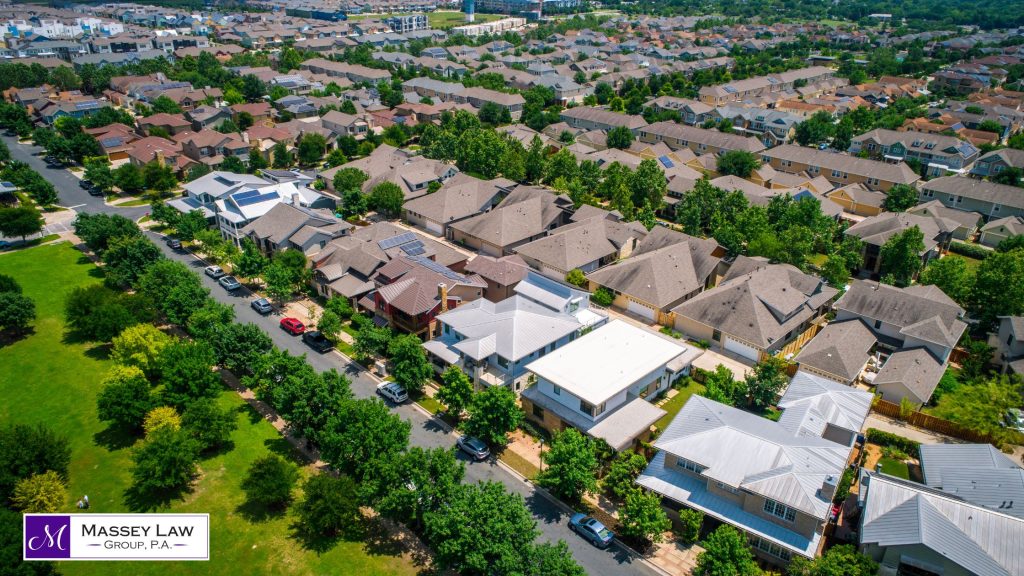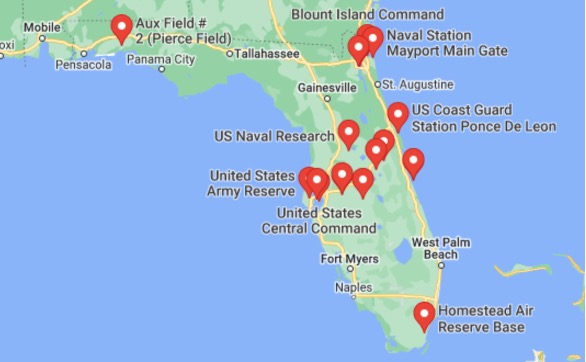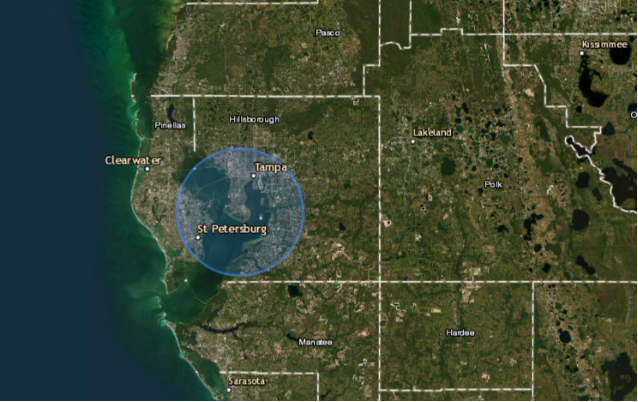Posted on July 11, 2023, by Starlett Massey

On July 1, 2023, several new Florida laws restricting the ownership and transfer of properties in Florida took effect. One such law is Fla. Stat. 692.203, wherein a “foreign principal” is prohibited from owning any property (or having more than a de minimus interest therein), including residential property, within 10 miles of a military installation or critical infrastructure facility. The law defines a “foreign principal” as a government, government official, political party or member of a political party, or any business having its principal place of business, in a “foreign country of concern.” The “foreign countries of concern” are defined as: the People’s Republic of China (“China”); the Russian Federation; the Islamic Republic of Iran; the Democratic People’s Republic of Korea; the Republic of Cuba; the Venezuelan regime of Nicolas Maduro, and the Syrian Arab Republic.
Foreign principals owning this type of property before July 1, 2023, may continue to own the property, but they must register with the Department of Economic Opportunity and are barred from acquiring any further properties of this type. The law carves out an exception for foreign nationals who are natural persons, permitting them to own one residential property, less than two acres in size, if the parcel is not within 5 miles of a military installation and the person holds a U.S. Visa or other official documentation confirming a long-term type of stay in the U.S.A.
Foreign principals receiving property through devise or descent, typically through a will, trust, or other gift, or through enforcement of a debt, are now required to sell or otherwise rid themselves of the property within three years of receipt.
Violations carry a hefty penalty. Not only is a violation of this law a second-degree misdemeanor, but property owned outside the parameters of the law will almost immediately be seized by the State of Florida and sold at auction.
In addition to the above, the new Florida Statute 692.204 specifically singles out the People’s Republic of China. The law prohibits the government of China or its political parties from owning real properties, but it also applies to any “member of the People’s Republic of China” or any person who is domiciled in China and who is not a citizen or lawful resident of the U.S.A. Under this section, the criminal penalty is elevated from a second-degree misdemeanor to a third-degree felony.
There is no doubt that lawmakers are concerned with national security, and perhaps rightfully so. For instance, many recall the recent “spy balloon” incident. Similarly, a Chinese corporation, “Fufeng,” attempted to buy 370 acres of land within 12 miles of a military base in Grand Forks, North Dakota, for what it stated were agricultural purposes. The deal ultimately fell through due to security concerns.
However, while our nation’s security and intelligence are certainly of critical importance, the new Florida laws go well beyond this purpose. Fla. Stat. 692.204 is far too broad and vague by including “any member” of the People’s Republic of China in the class of restrictions. This definition could be interpreted to mean anyone holding Chinese citizenship, even if they are also citizens or lawful permanent residents of the U.S.A. According to a joint statement by the National Asian Pacific American Bar Association, people of Asian descent may face unwarranted and discriminatory scrutiny in their real estate transactions in Florida. Moreover, the laws may prohibit immigrants not just from home ownership but also from contributing to the economy of Florida. Many view the new Florida laws as racist, xenophobic, and an overreaction to tensions between the U.S.A. and China.
The new laws prohibit ownership of property within 10 miles of a military installation. The below depicts just a sampling of what qualifies as a “military installation” as defined by the law.

Chinese citizens are essentially restricted from property ownership across the state, but especially in the Tampa Bay area, Jacksonville, Orlando, and Miami. For example, here is an approximate radius within 10 miles of MacDill Air Force Base in Tampa:

Under the new law, foreign principals acquiring property in Florida within 10 miles of a military installation (or “critical infrastructure”) must forfeit the property within three years. This forfeiture is unconstitutional and a flagrant violation of Florida and U.S. real property law.
The 14th Amendment of the U.S. Constitution guarantees that no state shall deprive any person of life, liberty, or property without due process of law. The 14th Amendment is not limited to citizens – rather, it applies to all persons, including the “foreign principals.” Similarly, Section 9 of Article I of the Florida Constitution guarantees the same rights. The new Florida laws restricting property ownership and requiring forfeiture of the property are in direct contrast with both constitutions. The State of Florida, through these laws, is depriving persons of property without due process of law.
The U.S. Fair Housing Act (42 U.S.C. 3601 et seq.) prohibits discrimination in real estate sales based on race or national origin. Not only are the new Florida laws in direct conflict with the Fair Housing Act, but they also pave the way to allow for more discrimination in real estate sales.
The new Florida laws are reminiscent of the Alien Land Laws of the 20th century. One such law was California’s “Alien Land Act” of 1913, which prohibited Japanese and other Asian immigrants from owning agricultural property in California. Ultimately, in 1952, the California Supreme Court struck down the law, finding that it violated the 14th Amendment of the Constitution because it was used “as an instrument for effectuating racial discrimination.”
Florida’s new laws related to Chinese ownership of property in Florida are confusing and subject to broad interpretation. If you are a property owner, seller, real estate agent, or potential property purchaser, it will be important to comply with these laws until the necessary revisions can be achieved. Be proactive and talk with MLG’s experienced real estate attorneys today.